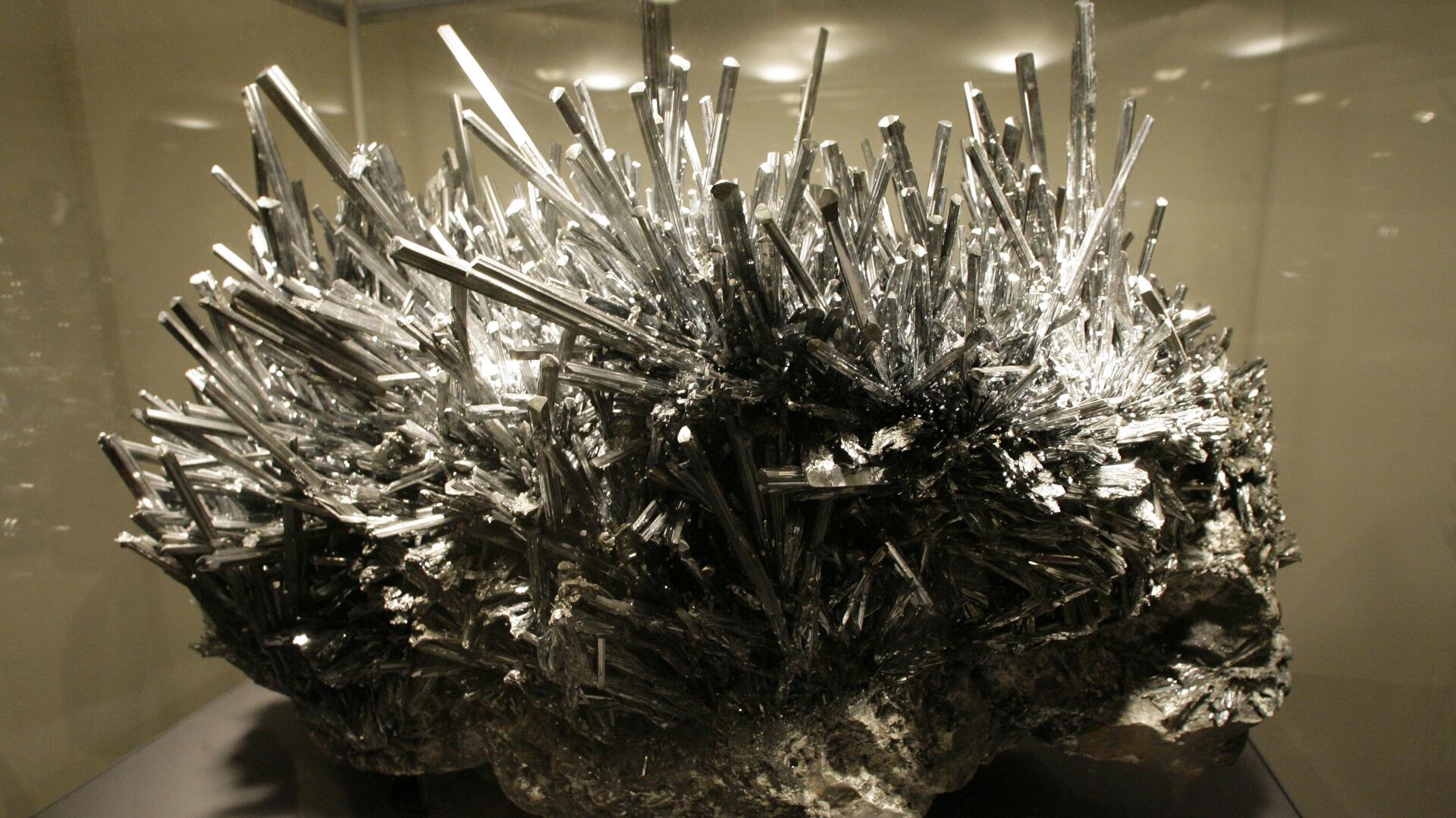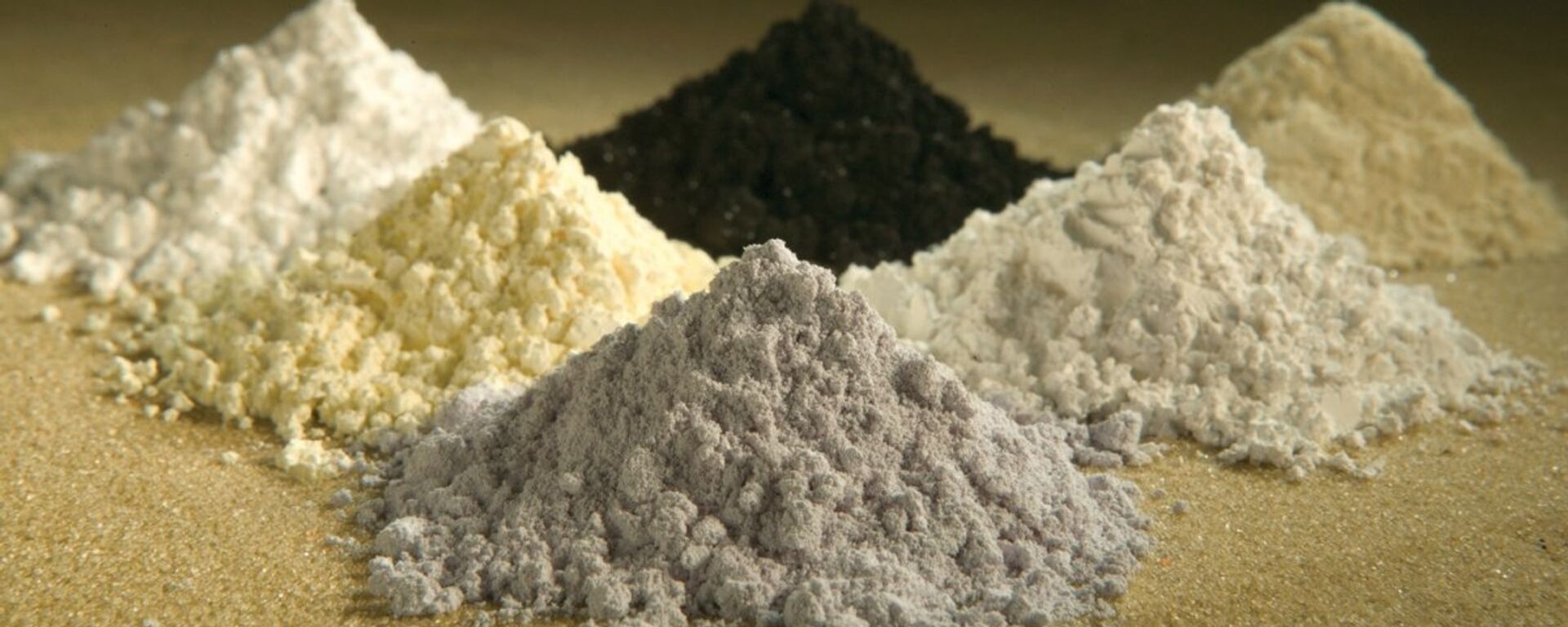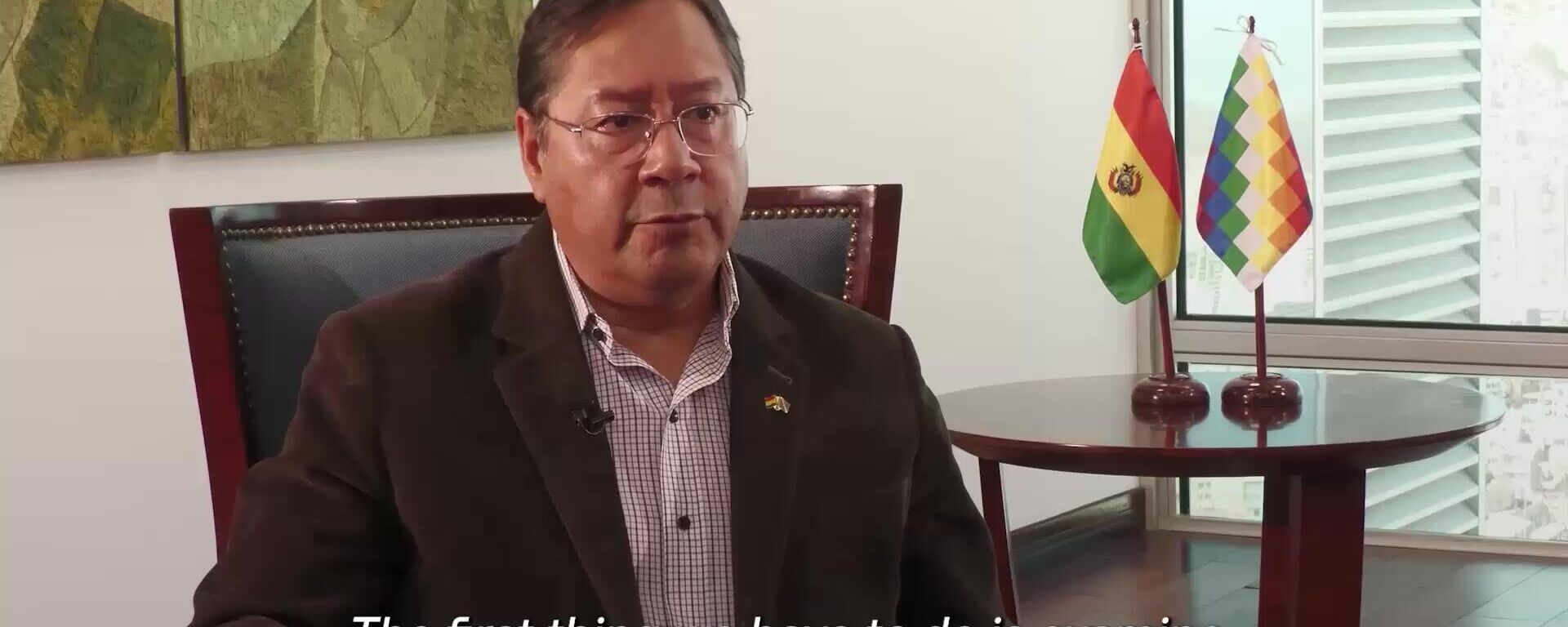https://sputnikglobe.com/20240819/chinas-restrictions-on-antimony-exports-could-cripple-us-military-industrial-complex-heres-why-1119827925.html
China’s Restrictions on Antimony Exports Could Cripple US Military-Industrial Complex: Here’s Why
China’s Restrictions on Antimony Exports Could Cripple US Military-Industrial Complex: Here’s Why
Sputnik International
China has slapped export controls on antimony metals, ores and oxides effective September 15. Companies seeking to export these materials will have to apply for export licenses for dual-use products. That's potentially bad news for American arms manufacturers.
2024-08-19T14:02+0000
2024-08-19T14:02+0000
2024-08-19T14:02+0000
economy
china
russia
us international trade commission
pentagon
metals
rare-earth metals
precious metals
exports
restrictions
https://cdn1.img.sputnikglobe.com/img/07e8/08/13/1119827722_0:161:3071:1888_1920x0_80_0_0_a68da17b7d3da4cdfe5e146523a87aab.jpg
In its explanation of last Thursday's decision to introduce export controls on antimony, China's Commerce Ministry said the measure was not aimed against any country, but at assuring China’s national security and fulfilling the PRC’s “non-proliferation obligations.” But with China accounting for nearly half of global antimony ore production in 2023, and the US a top buyer, it’s not hard to discern who the restrictions may hit the hardest.The US International Trade Commission considers antimony “critical to economic and national security – similar to rare earth elements, plus cobalt and uranium.” US business media have described it as “the most important mineral you never heard of.”That’s because in addition to a long list of civilian uses ranging from flame retardants, lead-acid batteries, and plastics, to ceramics, consumer electronics and safety clothing, antimony has a dizzying array of military applications, from armor-piercing bullets and tracer ammo to night vision goggles, laser sights, communications equipment and even components in nuclear weapons.China has the largest known reserves of the tough, heat and corrosion-resistant material in the world, boasting 640,000 metric tons in 2023. Russia is second, with 350,000 tons, and Bolivia is third, with 310,000 tons. US allies Australia, Turkiye, Canada are also in the top ten, with their reserves at 140,000, 99,000 and 78,000 tons, respectively. US reserves stand at 60,000 tons.China mined at least 40,000 tons of antimony in 2023, and together with Russia and Tajikistan reportedly controls up to 90% of the global antimony supply chain. The US closed its last antimony mine in 2001, leaving it totally dependent on imports.The US Defense Department backed the reopening of an abandoned antimony mine in Idaho in 2023, with Perpetua Resources receiving a $1.8 billion loan from the US Export-Import Bank, the official export credit agency of the US federal government, to develop it in April. The mine is expected to come back online by the late 2020s.A mining powerhouse, China has moved to gradually tighten its control over its strategic and rare earth minerals. Increasingly fierce global economic competition and decades of deindustrialization at home have left the US and its allies scrambling for alternative sources of critical minerals, with conflicts and coup attempts across the globe, from Ukraine and Bolivia to Venezuela and Africa attributed at least in part to growing 'great power competition' for strategic resource riches.US media have warned that China could singlehandedly ground US military aircraft, halt American tanks in their tracks and stop the country’s most advanced surface-to-air missiles if it halted its rare earths exports, with the US nowhere near ready to replace Chinese imports with domestic or friendly country sources.
https://sputnikglobe.com/20240701/china-tightens-control-over-rare-earth-resources-with-new-regulations-1119205402.html
https://sputnikglobe.com/20240704/exclusive-bolivian-natural-resources-could-be-root-of-failed-coup--president-1119243112.html
china
russia
Sputnik International
feedback@sputniknews.com
+74956456601
MIA „Rossiya Segodnya“
2024
News
en_EN
Sputnik International
feedback@sputniknews.com
+74956456601
MIA „Rossiya Segodnya“
Sputnik International
feedback@sputniknews.com
+74956456601
MIA „Rossiya Segodnya“
what is antimony used for, does us have antimony, how much antimony does china have, what's behind growing resource competition
what is antimony used for, does us have antimony, how much antimony does china have, what's behind growing resource competition
China’s Restrictions on Antimony Exports Could Cripple US Military-Industrial Complex: Here’s Why
China has slapped export controls on antimony metals, ores and oxides effective September 15. Companies seeking to export these materials will have to apply for export licenses for dual-use products. That's bad news for resource import-dependent American arms manufacturers.
In its explanation of last Thursday's decision to introduce export controls on antimony, China's Commerce Ministry said the measure was not aimed against any country, but at assuring China’s national security and
fulfilling the PRC’s “non-proliferation obligations.” But with China accounting for nearly half of global antimony ore production in 2023, and the US a top buyer, it’s not hard to discern who the restrictions may hit the hardest.
The US International Trade Commission considers antimony “critical to economic and national security – similar to rare earth elements, plus cobalt and uranium.” US business media have
described it as “the most important mineral you never heard of.”
That’s because in addition to a long list of civilian uses ranging from flame retardants, lead-acid batteries, and plastics, to ceramics, consumer electronics and safety clothing, antimony has a dizzying array of military applications, from armor-piercing bullets and tracer ammo to night vision goggles, laser sights, communications equipment and even components in nuclear weapons.
China has the largest known reserves of the tough, heat and corrosion-resistant material in the world, boasting 640,000 metric tons in 2023. Russia is second, with 350,000 tons, and Bolivia is third, with 310,000 tons. US allies Australia, Turkiye, Canada are also in the top ten, with their reserves at 140,000, 99,000 and 78,000 tons, respectively. US reserves stand at 60,000 tons.
China
mined at least 40,000 tons of antimony in 2023, and together with Russia and Tajikistan reportedly controls
up to 90% of the global antimony supply chain. The US closed its last antimony mine in 2001, leaving it totally dependent on imports.
The US Defense Department
backed the reopening of an abandoned antimony mine in Idaho in 2023, with Perpetua Resources receiving a
$1.8 billion loan from the US Export-Import Bank, the official export credit agency of the US federal government, to develop it in April. The mine is expected to come back online
by the late 2020s.
A mining powerhouse, China has moved to gradually tighten its control over its strategic and rare earth minerals. Increasingly fierce global economic competition and decades of deindustrialization at home have left the US and its allies scrambling for alternative sources of critical minerals, with conflicts and coup attempts across the globe, from
Ukraine and
Bolivia to
Venezuela and
Africa attributed at least in part to growing 'great power competition' for strategic resource riches.
US media have warned that
China could singlehandedly ground US military aircraft, halt American tanks in their tracks and stop the country’s most advanced surface-to-air missiles if it halted its rare earths exports, with the US nowhere near ready to replace Chinese imports with domestic or friendly country sources.




